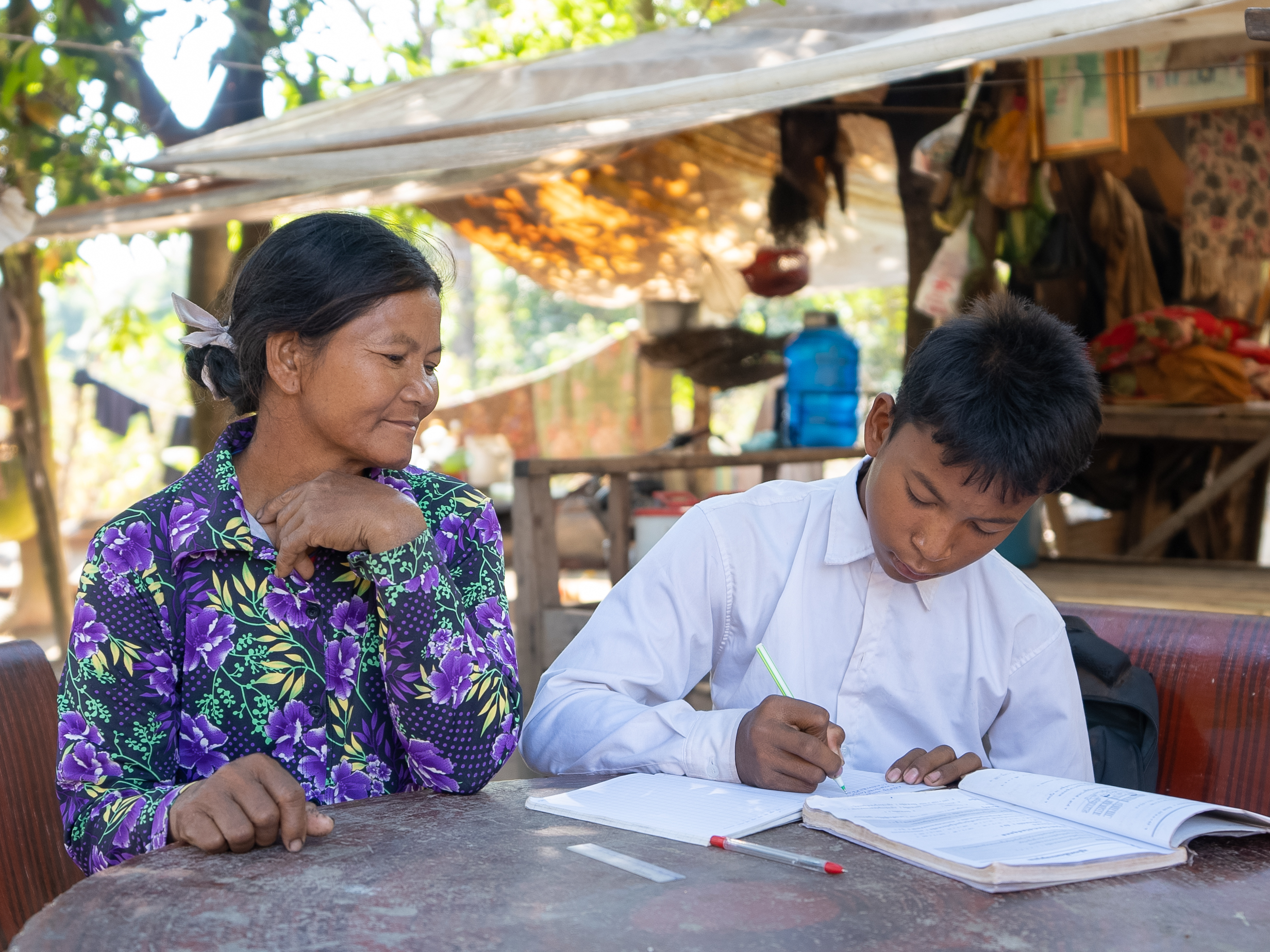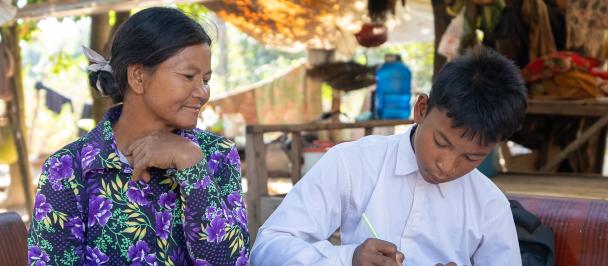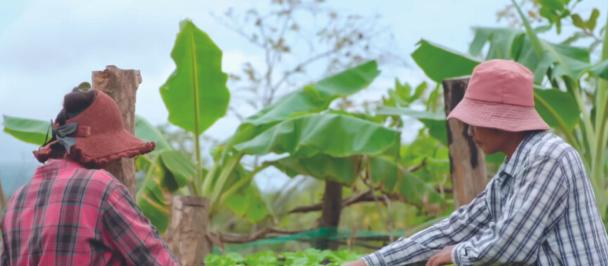A woman-headed household found hope in the IDPoor programme
October 27, 2023

Ms. Nhim Rorn and her son in front of their poor makeshift house, made of plastic sheets for a roof and with no walls.
Despite living in poverty, Rorn, a single mother of four children, has never given up on sending her children to school. She hopes that education can get her children out of poverty and give them a better life.
Rorn is a farmer and an agricultural labourer living in Banteay Srei District of Siem Reap province. She works hard to send her children to school while also caring for her elderly mother.
As a woman-headed household supporting five members of her family, she struggled to make ends meet. Her family depends solely on her unstable income from daily labour.
Sitting outside of her poor makeshift house, made of plastic sheets for a roof and no walls, Rorn shares with us her story, “I had no money, and my family situation was so dire because I needed to spend on my children’s education and my mother’s medical expenses.”
“Before, I used to borrow money from my relatives and sometimes from my neighbours” she explains.
However, in June 2019, Rorn’s situation changed positively when the commune council registered her family in the Identification of Poor Household (IDPoor) system. This social protection targeting mechanism identifies poor and at-risk households for receiving government’s cash transfer and other social assistance. Under the government Cash Transfer Programme, each eligible and registered household receives a base monthly transfer of USD 20 and accesse to free healthcare and other social services. In addition, the household receives top-up amounts for pregnant women, children under 2, the elderly, people with disabilities and people living with HIV/AIDS.
With the money received, Rorn was able to pay for her children’s education and her mother’s medical expenses and to buy seeds and fertilizers for farming. “I am happy because I can receive monthly assistance from the government to cover my basic family expenses. I am also working. I am no more afraid of how to end the month,” Rorn says.
The IDPoor programme has been implemented in Cambodia since 2007. Since 2020, UNDP Cambodia, with funding from Covid-19 Rapid Response/Financing Facilities and the Australian Government’s Department of Foreign Affairs and Trade (DFAT), has been supporting the Royal Government of Cambodia in on-demand registration of poor households affected by Covid-19 and in improving the targeting methodology and data collection for the social protection scheme in Cambodia. Accordingly, Ministry of Planning successfully rolled out the On-Demand IDPoor programme, enabling many households, including those affected by COVID-19, inflation and flooding to receive social assistance and enhance their resilience.
As of June 2023, the cash transfer programme has disbursed US $1.1 billion (Khmer Time)[1] to 707,575 households, including 87,841 persons with disabilities and 2,057 people living with HIV/AIDS. Rorn’s family is one of the cash recipients of this programme.
Rorn is grateful for the programme and the support that her family received. She hopes to see future programmes that would support not only cash but also skill training to poor families in her community so that they can access job and livelihoods opportunities.
Support to the IDPoor Programme was availed through the DFAT-Resilience Facility Project, funded by Australian Government’s Department of Foreign Affairs and Trade (DFAT) and Policy and Innovation Hub for Sustainable Development with UNDP’s Core resource, Covid-19 Rapid Response and Rapid Financing Facilities.
Find out about another benefitting family from the IDPoor programme in Preah Vihear in the video below.

 Locations
Locations



